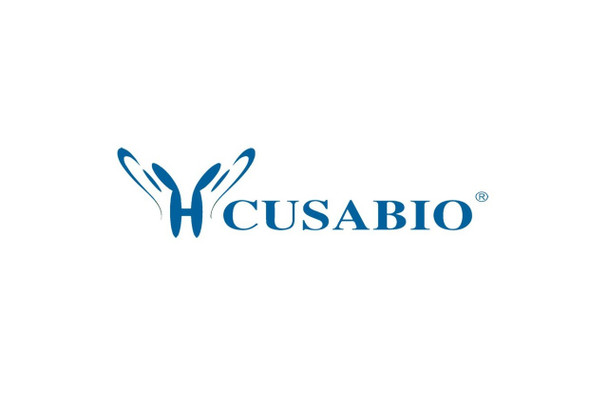Cusabio Human Recombinants
Recombinant Human Vacuolar fusion protein MON1 homolog A (MON1A), partial | CSB-EP801242HU
- SKU:
- CSB-EP801242HU
- Availability:
- 13 - 23 Working Days
Description
Recombinant Human Vacuolar fusion protein MON1 homolog A (MON1A), partial | CSB-EP801242HU | Cusabio
Alternative Name(s): FLJ97088; MGC13272; MON1 homolog A; MON1A; MON1A_HUMAN; SAND1; Vacuolar fusion protein MON1 homolog A
Gene Names: MON1A
Research Areas: Signal Transduction
Organism: Homo sapiens (Human)
AA Sequence: DGYKVVFVRRSPLVLVAVARTRQSAQELAQELLYIYYQILSLLTGAQLSHIFQQKQNYDLRRLLSGSERITDNLLQLMARDPSFLMGAARCLPLAAAVRDTVSASLQQARARSLVFSILLARNQLVALVRRKDQFLHPIDLHLLFNLISSSSSFREGEAWTPVCLPKFNAAGFFHAHISYLEPDTDLCLLLVSTDREDFFAVSDCRRRFQERLRKRGAHLALREALRTPYYSVAQVGIPDLRHFLYKSKSSGLFTSPEIEAPYTSEEEQERLLGLYQYLHSRAHNASRPLKTIYYTGPNENLLAWVTGAFELYMCYSPLGTKASAVSAIHKLMRWIRKEEDRLFILTPLTY
Source: E.coli
Tag Info: N-terminal 6xHis-SUMO-tagged
Expression Region: 205-555aa
Sequence Info: Partial
MW: 56.2 kDa
Purity: Greater than 90% as determined by SDS-PAGE.
Relevance: Plays an important in mbrane trafficking through the secretory apparatus. Not involved in endocytic trafficking to lysosomes .
Reference: The DNA sequence, annotation and analysis of human chromosome 3.Muzny D.M., Scherer S.E., Kaul R., Wang J., Yu J., Sudbrak R., Buhay C.J., Chen R., Cree A., Ding Y., Dugan-Rocha S., Gill R., Gunaratne P., Harris R.A., Hawes A.C., Hernandez J., Hodgson A.V., Hume J. , Jackson A., Khan Z.M., Kovar-Smith C., Lewis L.R., Lozado R.J., Metzker M.L., Milosavljevic A., Miner G.R., Morgan M.B., Nazareth L.V., Scott G., Sodergren E., Song X.-Z., Steffen D., Wei S., Wheeler D.A., Wright M.W., Worley K.C., Yuan Y., Zhang Z., Adams C.Q., Ansari-Lari M.A., Ayele M., Brown M.J., Chen G., Chen Z., Clendenning J., Clerc-Blankenburg K.P., Chen R., Chen Z., Davis C., Delgado O., Dinh H.H., Dong W., Draper H., Ernst S., Fu G., Gonzalez-Garay M.L., Garcia D.K., Gillett W., Gu J., Hao B., Haugen E., Havlak P., He X., Hennig S., Hu S., Huang W., Jackson L.R., Jacob L.S., Kelly S.H., Kube M., Levy R., Li Z., Liu B., Liu J., Liu W., Lu J., Maheshwari M., Nguyen B.-V., Okwuonu G.O., Palmeiri A., Pasternak S., Perez L.M., Phelps K.A., Plopper F.J., Qiang B., Raymond C., Rodriguez R., Saenphimmachak C., Santibanez J., Shen H., Shen Y., Subramanian S., Tabor P.E., Verduzco D., Waldron L., Wang J., Wang J., Wang Q., Williams G.A., Wong G.K.-S., Yao Z., Zhang J., Zhang X., Zhao G., Zhou J., Zhou Y., Nelson D., Lehrach H., Reinhardt R., Naylor S.L., Yang H., Olson M., Weinstock G., Gibbs R.A.Nature 440:1194-1198(2006)
Storage: The shelf life is related to many factors, storage state, buffer ingredients, storage temperature and the stability of the protein itself. Generally, the shelf life of liquid form is 6 months at -20?/-80?. The shelf life of lyophilized form is 12 months at -20?/-80?.
Notes: Repeated freezing and thawing is not recommended. Store working aliquots at 4? for up to one week.
Function: Plays an important role in membrane trafficking through the secretory apparatus. Not involved in endocytic trafficking to lysosomes (By similarity). Acts in concert with CCZ1, as a guanine exchange factor (GEF) for RAB7, promotes the exchange of GDP to GTP, converting it from an inactive GDP-bound form into an active GTP-bound form
Involvement in disease:
Subcellular Location:
Protein Families: MON1/SAND family
Tissue Specificity:
Paythway:
Form: Liquid or Lyophilized powder
Buffer: If the delivery form is liquid, the default storage buffer is Tris/PBS-based buffer, 5%-50% glycerol. If the delivery form is lyophilized powder, the buffer before lyophilization is Tris/PBS-based buffer, 6% Trehalose, pH 8.0.
Reconstitution: We recommend that this vial be briefly centrifuged prior to opening to bring the contents to the bottom. Please reconstitute protein in deionized sterile water to a concentration of 0.1-1.0 mg/mL.We recommend to add 5-50% of glycerol (final concentration) and aliquot for long-term storage at -20?/-80?. Our default final concentration of glycerol is 50%. Customers could use it as reference.
Uniprot ID: Q86VX9
HGNC Database Link: HGNC
UniGene Database Link: UniGene
KEGG Database Link: KEGG
STRING Database Link: STRING
OMIM Database Link: OMIM









